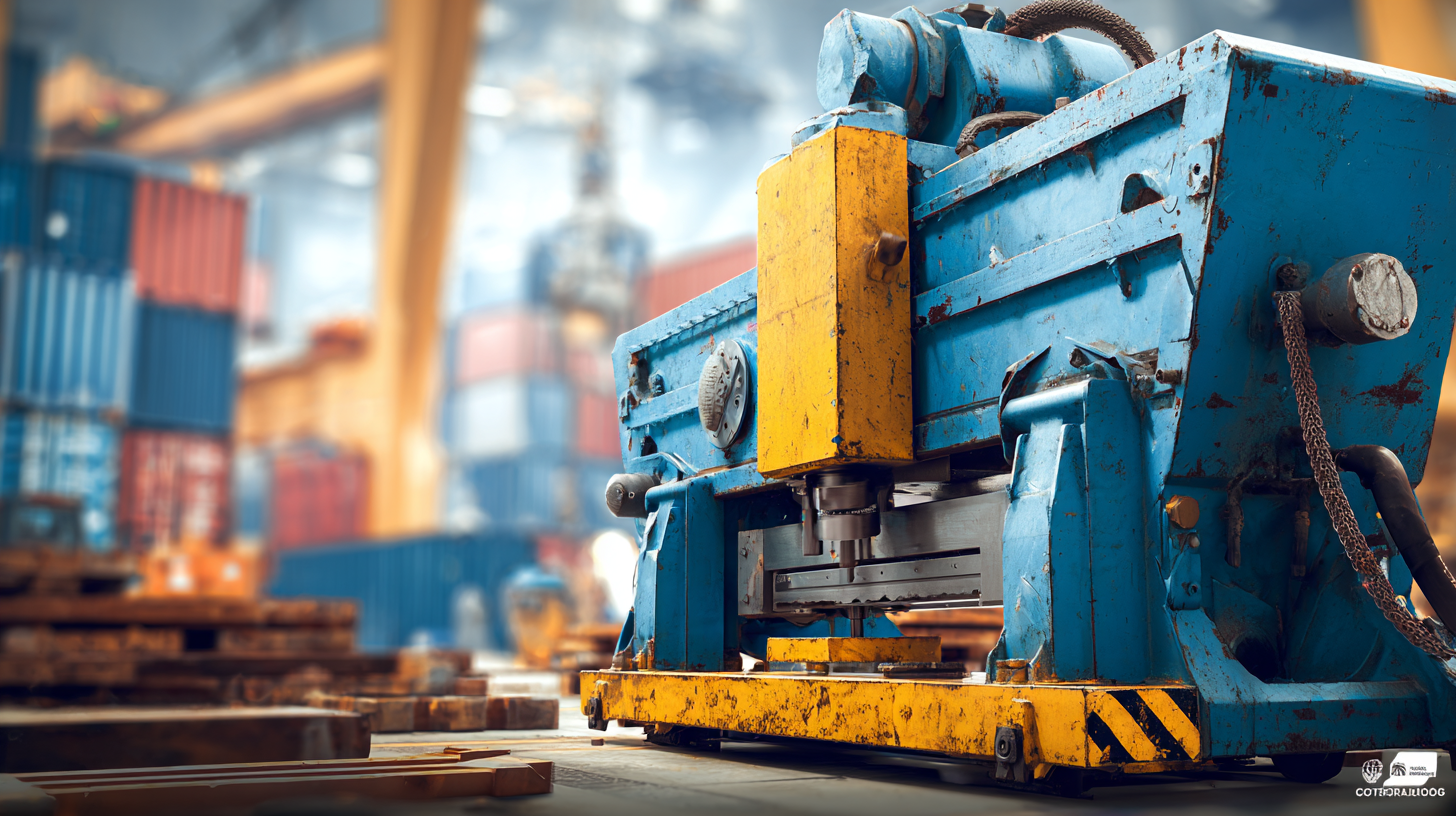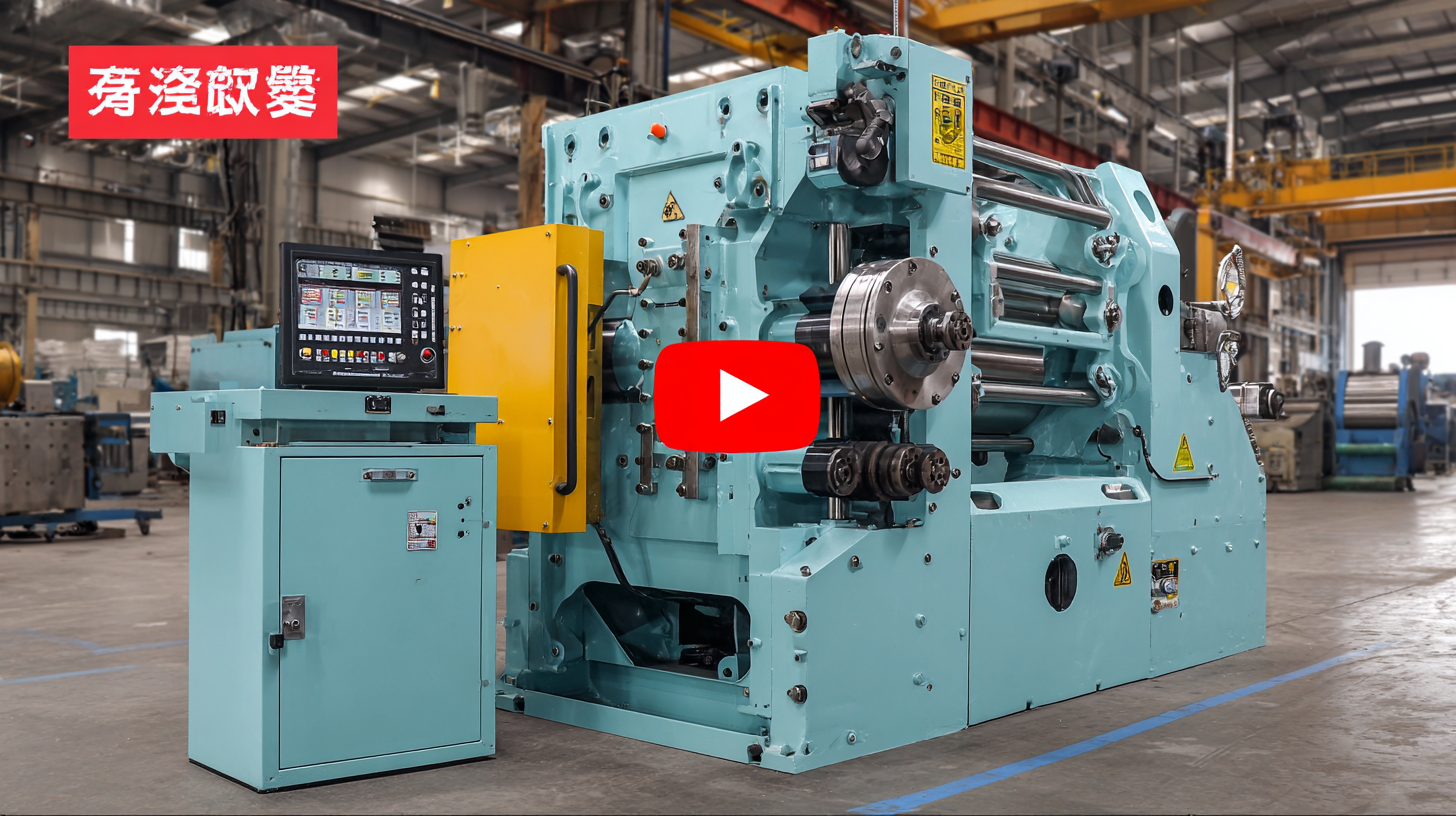Unlocking Global Trade with Best Hydraulic Metal Shear Machine Import and Export Certification Guide
In an era where global trade dynamics are rapidly evolving, the importance of specialized machinery like the hydraulic metal shear machine cannot be overstated. According to a report by Grand View Research, the global metal cutting machine market size was valued at approximately $3.22 billion in 2020 and is projected to expand at a compound annual growth rate (CAGR) of 6.4% from 2021 to 2028. As countries strive to enhance their manufacturing capabilities and compete on the international stage, investing in high-quality hydraulic metal shear machines is essential. These machines not only ensure precision and efficiency in metal processing but also play a critical role in meeting certification standards for international trade. The phrase "精工细造,中国制造,服务世界" reflects the essence of China's commitment to delivering finely crafted machinery that meets global demands. This blog aims to provide a comprehensive certification guide for importing and exporting hydraulic metal shear machines, unlocking the potential for businesses to thrive in the global marketplace.

Understanding the Importance of Import and Export Certifications in the Metal Shear Industry
In the metal shear industry, understanding the significance of import and export certifications is crucial for ensuring compliance and facilitating smooth international transactions. Certifications not only demonstrate adherence to safety and quality standards but also enhance the credibility of manufacturers and suppliers in the global market. As companies aspire to penetrate new markets, possessing the right certifications can set them apart from competitors and build trust among international clients.
When participating in events like Steel Scrap 2025, it's essential for industry players to grasp the nuances of certification requirements in various regions. This knowledge enables them to streamline their operations and avoid potential setbacks in trade. Import and export certifications can vary significantly by country, so businesses must stay informed about the latest regulations to ensure compliance.
Tips: First, always verify the latest import and export regulations for your target markets to prevent delays. Second, engage with certification bodies early in the process to expedite obtaining necessary documentation. Finally, consider networking at industry events to learn from fellow participants about best practices and shared experiences regarding certifications.
Key Requirements for Obtaining Hydraulic Metal Shear Machine Certifications
Obtaining the right certifications for hydraulic metal shear machines is crucial for manufacturers looking to engage in global trade. According to the International Organization for Standardization (ISO), over 85% of global trade relies on compliance with recognized standards. This compliance is essential not only for safety and quality assurance but also for meeting the regulatory requirements of various countries. Key certifications often include ISO 9001 for quality management and CE marking for machinery sold within the EU.
The process of certification involves multiple stages, starting with product testing and quality assessments. Reports indicate that certification can reduce manufacturing defects by up to 40%, enhancing the machine's reliability and increasing its appeal in the global marketplace. As of 2023, the global hydraulic shear machine market is projected to grow at a CAGR of 6.2%, demonstrating a rising demand for certified products that ensure operational efficiency and safety. Establishing a robust compliance framework can help manufacturers not only to meet trade standards but also to gain a competitive edge in a rapidly evolving international market.
Step-by-Step Guide to Navigating the Certification Process for Global Trade
Navigating the certification process for hydraulic metal shear machines can be a daunting task, yet it is crucial for unlocking opportunities in global trade. According to a report by Research and Markets, the global hydraulic metal shear market is expected to reach USD 1.2 billion by 2025, growing at a CAGR of 4.7%. This growth presents a unique opportunity for manufacturers and exporters who are ready to comply with international standards.

To successfully navigate the certification process, understanding the specific requirements for different regions is essential. For instance, the CE marking in Europe and the ANSI standards in the United States highlight the importance of safety and operational efficiency. Compliance not only ensures the legal marketability of hydraulic shear machines but also builds trust with international customers. In 2021, approximately 25% of U.S. metalworking machinery exports were attributed to certified equipment, showcasing how adherence to certification standards can significantly enhance market competitiveness. With these guidelines in hand, businesses can efficiently streamline their certification journey and enhance their presence in the booming global marketplace.
Common Challenges in Securing Import and Export Certifications and How to Overcome Them
Securing import and export certifications for hydraulic metal shear machines presents several challenges that businesses must navigate in today's global trade landscape. Common issues include understanding complex regulations, managing different certification bodies, and adapting to market-specific standards. For instance, a recent industry report indicated that 40% of importers face significant delays due to insufficient knowledge of local requirements, highlighting the need for tailored guidance when tackling these certifications.
To overcome these hurdles, companies should adopt a strategic approach. First, it's crucial to stay informed about the latest regulatory changes in target markets. This can be achieved by subscribing to relevant industry publications or joining professional associations. Additionally, establishing partnerships with local experts can facilitate smoother navigation of certification processes.
**Tips**: Regularly review your internal compliance procedures to ensure alignment with evolving regulations. Furthermore, invest in training programs for your staff to enhance their understanding of certification requirements. Engaging with others in the sector can also provide valuable insights and shared experiences that help demystify the complex world of import and export certifications.

Best Practices for Maintaining Compliance in International Trade of Hydraulic Metal Shears
Maintaining compliance in the international trade of hydraulic metal shears is crucial for businesses aiming to thrive in the global market. According to the International Trade Administration, the global market for metalworking machinery is projected to reach $200 billion by 2025. This growth presents immense opportunities, but also challenges related to regulatory compliance. Understanding and adhering to certifications like CE, ISO, and RoHS can significantly streamline the import and export process, ensuring safety and quality in hydraulic metal shears.
Tips for compliance include staying informed about the changing regulations in different regions. Regularly consult resources such as the World Trade Organization’s database to understand specific import duties and export requirements that can affect your business operations. Additionally, developing a strong relationship with certified inspection agencies can enhance your compliance efforts, reducing the risk of trade barriers.
Another vital practice is to implement a robust quality management system (QMS) within your operations. A recent report by the Association for Manufacturing Technology revealed that companies with a certified QMS experience up to 30% less non-compliance issues. Thus, adopting best practices in quality assurance not only boosts compliance but also enhances your product's reputation in the competitive global market.
Unlocking Global Trade with Best Hydraulic Metal Shear Machine Import and Export Certification Guide
| Certification Type | Issuing Authority | Compliance Requirements | Renewal Period | Common Challenges |
|---|---|---|---|---|
| CE Marking | European Union | Safety, Health, and Environmental Standards | Annually | Documentation accuracy and test procedure compliance |
| ISO 9001 | International Organization for Standardization | Quality Management System requirements | Every 3 years | Maintaining documented information |
| UL Certification | Underwriters Laboratories | Safety standards for electrical and mechanical products | Annually | Adherence to testing processes |
| RoHS Compliance | European Union | Restriction of Hazardous Substances in electrical equipment | Every 5 years | Tracking material sources |
